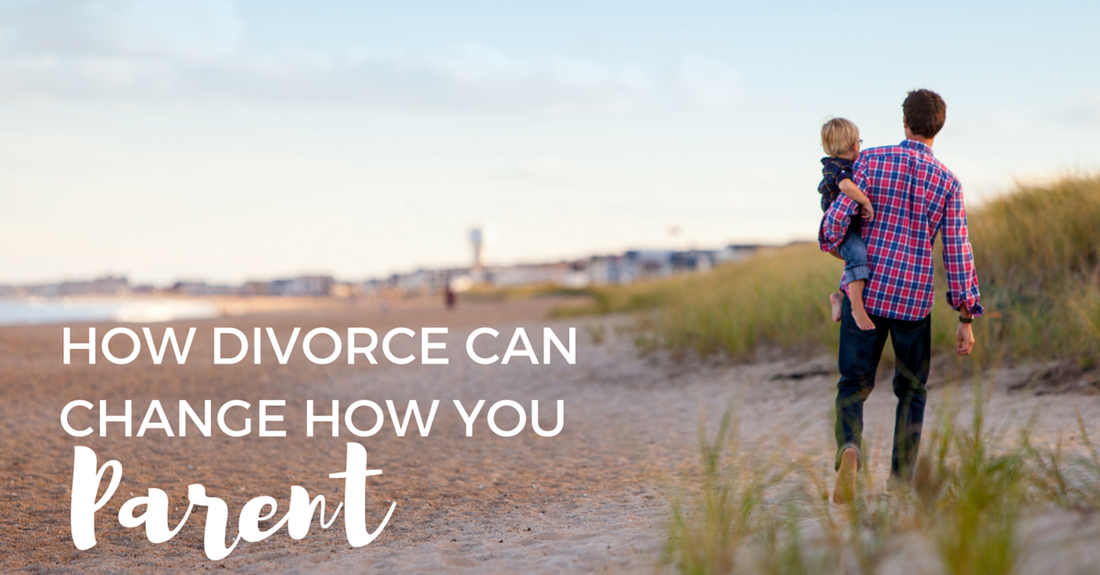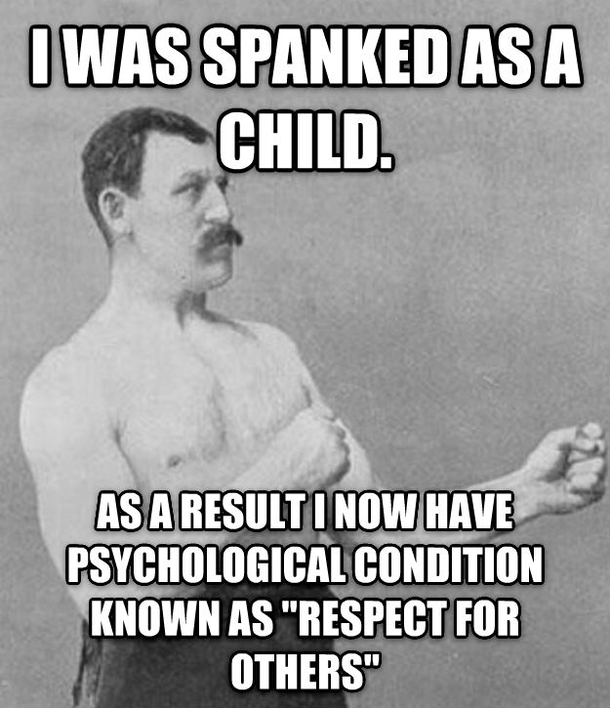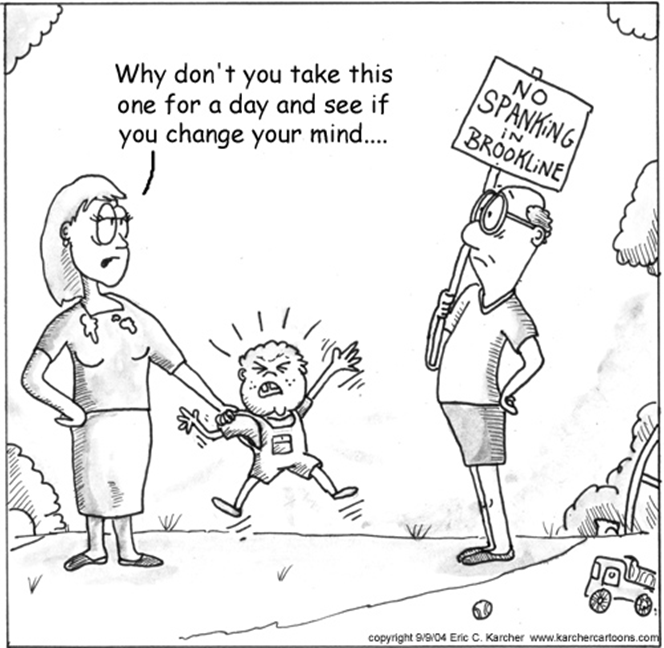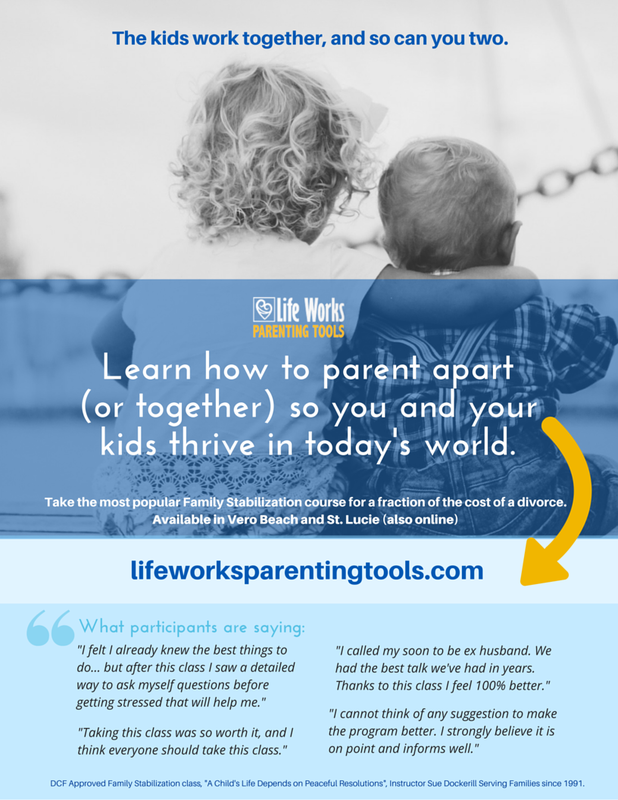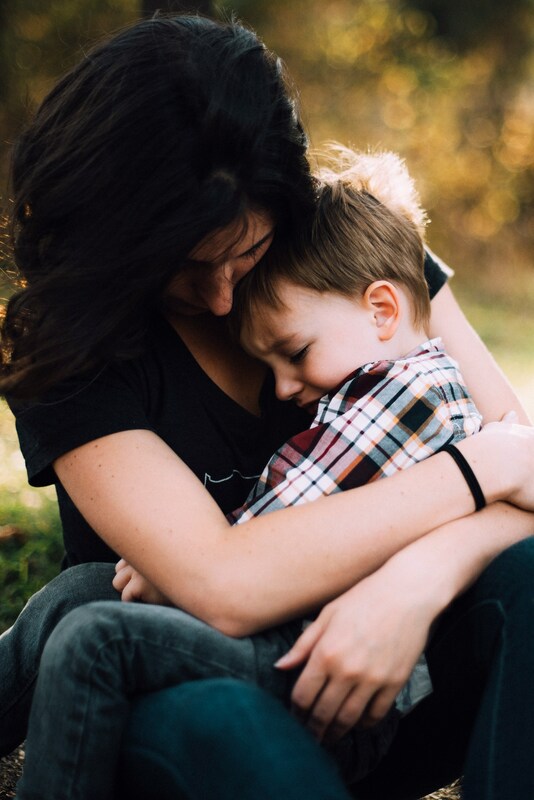 Whether you are recently divorced or have been for some time, don’t be anxious that you have ruined your child’s life. You haven’t. While divorce can be a big part of your child’s life, what will determine his ultimate quality of life is still in the hands of each parent. Can children be affected negatively by their parent’s divorce? Most certainly. But it’s important to understand that children are not necessarily doomed to be negatively impacted. Let’s take a closer look at a few common situations that arise and how you can best handle them so your child doesn’t get caught in the crossfires. Accept the fact that you may fall apart Understand that it is normal and natural to fall apart right after the divorce. Divorce marks the end of a relationship, and as with any death, there is a grieving process we go through when we call it quits with our spouse—regardless of how amicable the split is. You may feel overwhelmed, sad, angry, and less patient in general. Your child’s behavior will likely be affected as well. She will go through her own grieving process, but added to that are her worries about her parents, how to transition between Mom and Dad’s house, how to deal with the rules at each house, and what the future will hold. Here’s an important rule: You are the only one in charge when your kids are with you. The key is to make rules and enforce those that support your principles. But here’s the truth: you are entitled to fall apart. You do not have to hide all your sad and difficult feelings from your child. This is different from over-sharing with your child or telling her too much about your personal life or your relationship with your ex. Doing this is a mistake because it forces your child into an adult position, making her your confidant. It can also create a bias against the other parent. Rather, just let your child know you are having a hard time and that you will get better. Don’t forego consequences out of guilt Many, many parents skip giving consequences after a divorce because they feel guilty about what they have done to their child’s life. The danger is that this can become a habit, and your child may then develop some pretty ugly behaviors as a result. Many kids act out as a reaction to the stress, anxiety and sadness they feel over the split of their parents. But remember, the best thing you can do for your child right now is be consistent. Yes, be empathetic to your kids—they are going through a rough time, too—but hold the line when they cross the line. If your teen keeps breaking curfew, give her the same consequence you would have given before. If your 10-year-old son calls you names and screams in your face, again, follow through with some appropriate discipline. Be sure to talk with your child after everyone has calmed down and find out what’s going on with them. Be open to talk about the divorce and their feelings around it if the subject comes up and try to really listen to what your child has to say. When your child over-functions Kids react to divorce in different ways. Your son might attempt to take care of you so as not to make any trouble. He might try to take on the missing parent’s role and act like an adult instead of a child. Your daughter might become an overachiever—or an underachiever. Children often over-function for their parents after a divorce because there’s a vacuum that’s been left. They move right into it because they feel like they have to take up that “missing” role. What will help your child the most is if you can assure him that the best thing he can do right now is just be a kid and live his own life. As a parent, you can remind your kids by your actions and your words that they do not need to take care of you. Although you are going through a rough period, let them know that you are still able to take care of yourself and your family. When your child acts out There are a million reasons why kids act out after a divorce. Here are some of the most common:
Some kids act out right after a divorce in an attempt to push you to be strong. If your child is acting out, it can be helpful to understand that his behavior might be coming from his anxiety about the divorce. It makes kids nervous when their parents seem to have lost strength. If your kid is pushing you in all different ways, it could be that he’s hoping that he sees a parent that doesn’t break. If that’s going on in your home, again, you can empathize and understand where these behaviors might be coming from, but you don’t have to put up with it. Let your child know that it will be most helpful that he be more cooperative and not give you a hard time. Then set limits with him, give consequences and follow through. When you parent differently from your ex One of the reasons that you got divorced might have been because you had a hard time agreeing on most things. Being divorced is not going to make that any easier. The good news is that when you are with your kids, your ex cannot tell you what to do. And of course, you can’t tell him or her what to do, either—or how to parent. [Note: Unless there is a case of proven abuse or neglect, you do not have control over how your ex will parent your child. Courts usually back the rule that what a parent does when she is with her child is her business, no one else’s, other than when true abuse and/or neglect is present.] Here’s an important rule: You are the only one in charge when your kids are with you. The key is to make rules and enforce those that support your principles. Expect your child to follow your rules in your home and don’t worry about what is going on in the other home. Of course it is beneficial to work together and to call and collaborate when it comes to parenting your child, if possible. You can suggest things, let your ex know your concerns, stay open and listen to his or her concerns, and then decide for yourself what you will or won’t do. You can try to discuss your parenting ideas, but if your ex is not on board, get out of his or her box and stay focused on your parenting values in your home. When your ex complains about your parenting style The answer to your ex if she complains about your parenting is to say, “I’m good with how I’m doing things.” Or “I’m comfortable with how I’m doing things.” If she continues to complain, again repeat, “I am good with how I am doing things.” Do not engage in any more conversations about this topic. Along the same lines, don’t go crazy about how she is parenting. What matters is how you are parenting when your kids are with you. That influence will make a big difference as to how your child does in life. Don’t put your child in the middle Children can get caught in the middle when parents put them in the middle. Kids don’t want to take sides—they want to be free of worrying about the other parent when they are with you. Don’t talk to them about your ex in a way that will force them to take sides. Let’s say your son says, “Dad says you don’t help me enough with schoolwork.” As long as you believe you’re doing your best with that, instead of saying “That’s not true!” or unleashing some choice words about your ex-spouse, try to respond non-defensively. You can say, “I think we’re doing a good job together. I’m sorry your father feels that way.” By doing that you have successfully ended the battle and gotten your child out of the middle. It also sends the message to your child that the other parent can do or say whatever he wants, but it doesn’t matter when your child is with you. You are not getting engaged in the battle. The rule of thumb as a parent is to never say anything to your child negatively about the other parent if at all possible. You may have to bite your tongue, but it is so important that you try to refrain from criticizing your ex. By doing this, you’ll be helping your child have healthy relationships with both parents, and that’s probably what we all want in the long run. When kids play parents off each other A by-product of divorce is that sometimes kids will play parents off one another. It’s a source of power for them that, quite frankly, often works. You’ll hear things like, “Mom says I don’t have to go for extra help at school if I don’t want to.” Or “Dad lets me stay up until 10 p.m.” The bottom line is that children will often use that edge to manipulate you to get what they want. When you catch your child doing this, simply pause and say, “When you are in my house, you follow my rules. If you’re in Dad’s house, you follow Dad’s rules. I don’t have jurisdiction over what Dad does, and he doesn’t have jurisdiction over what I do.” Here’s what you can do to prevent their manipulation from becoming effective: Check with the other parent directly. If the other parent has changed the rule or the plans, you can either agree with this change or disagree and negotiate with each other as adults. Don’t get into the habit of relaying messages through your child. If you have a message or question, call the other parent directly. If your child lies about what the other parent said and then tries to hide it, confront him with it. You can say, “I talked to your mom and she did not say that. I don’t want you lying to me.” When you do this, you are basically letting your child know that you are dealing directly at all times with your ex, and that he can’t get away with playing you off the other parent. Transitioning between houses Many, many kids have difficulty transitioning back and forth between houses each week. On the day they arrive home, they might act out by throwing tantrums, having outbursts or by “acting in” and shutting the door to their room and refusing to speak. Why do they do this? They might be testing you to see if you are strong and steady. They may have kept it together when with the other parent and now are letting loose with you. They may be expressing their anger at the disruption in their lives and their wish for you to be back together as a family. Sometimes kids will be a problem on purpose because they hope their parents will get together around this “difficult child.” Be empathetic to the feelings that might drive these behaviors. After all, your kids are impacted by something that they did not have any control over, nor did they probably want. Keep in mind, however, that you do not need to put up with the behavior. When you talk with your child about it, you might first reflect her feelings: “You sound angry. Do you want to tell me what’s going on?” Or “You sound sad. It must be hard to leave Dad’s house and know you won’t see him for a few days.” If your child continues to have tantrums, ignore them the best you can; respond only when your child has calmed herself down. Whenever your child transitions in a positive way, acknowledge the good behavior: “Boy, I noticed this week when you came back home, you were pretty calm and in control. I know that’s difficult for you and I really appreciate you keeping it together.” You can also set some consequences if and when necessary. To keep your mind at ease and help you stay calm, recognize that how your child will turn out has the most to do with the relationship that she develops and maintains with each parent. Divorce is not the only factor that will impact her life. How maturely you behave with your ex will keep your child out of emotional harm’s way. Having a solid relationship with your child is in your hands.  Learn how to parent in today's world so your kids will THRIVE. Available online or a LIVE* course. If you need to take a parenting or co-parenting class, our parenting (or divorce) class, A Child's Life Depends on Peaceful Resolutions, is available 24/7 online or onsite at Port St. Lucie and Vero Beach, Florida. This is a perfect course for single parents, married couples, blended families, or couples going through a divorce. All participants receive an official certificate upon completion. Life Works Parenting Tools is an international training facility offering parent education and certification. Our goal is to enhance the quality of life by expanding parent education and personal transformation seminars in the world. Life Works Parenting Tools as a team of trained and certified parent educators who teach classes, offer workshops, and make home visits. Susan Dockerill is the founder of Life Works Parenting Tools and the owner of Life Works Resource Center in Stuart, Florida. Her mission is to improve the quality of people’s lives through education. Ten years of teaching children in public, private, and military schools at home and abroad, plus 17 years teaching and mediating with parents and teachers has given her the expertise to speak frankly about marriage, divorce, children, and being responsible for living the life of your dreams. Her style is up-close and personal. She entertains everyone who attends whether she is speaking in a jail or to a church group. Why Parents in Palm City Love our Parenting Class ✓ No reading through hours of text, watch a video of a recorded live course ✓ Course is 100% Online ✓ Unlimited access, Course is Available 24/7 ✓ Live Phone Support with the Instructor, Sue Dockerill ✓ Instant Certificate Delivery "This video gives great insight on how divorce effects the family as a whole and gives you the tools you need to be successful co-parents." ~Tambi Local provider serving Florida since 1991. Palm City is a census-designated place in Martin County, Florida, United States. The population was 23,120 at the 2010 census. It is part of the Port St. Lucie Metropolitan Statistical Area.
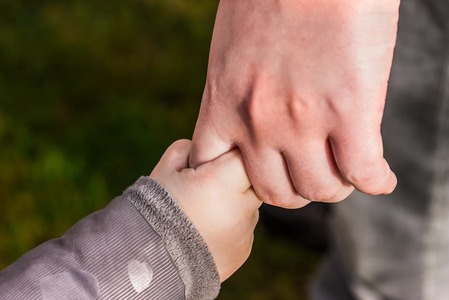 Helping Florida Families Cope with Divorce and Separation If you need to take a parenting or co-parenting class, our parenting (or divorce) class, A Child's Life Depends on Peaceful Resolutions, is available 24/7 online or onsite at Port St. Lucie and Vero Beach, Florida. This is a perfect course for single parents, married couples, blended families, or couples going through a divorce. All participants receive an official certificate upon completion. Life Works Parenting Tools is an international training facility offering parent education and certification. Our goal is to enhance the quality of life by expanding parent education and personal transformation seminars in the world. Life Works Parenting Tools as a team of trained and certified parent educators who teach classes, offer workshops, and make home visits. Susan Dockerill is the founder of Life Works Parenting Tools and the owner of Life Works Resource Center in Stuart, Florida. Her mission is to improve the quality of people’s lives through education. Ten years of teaching children in public, private, and military schools at home and abroad, plus 17 years teaching and mediating with parents and teachers has given her the expertise to speak frankly about marriage, divorce, children, and being responsible for living the life of your dreams. Her style is up-close and personal. She entertains everyone who attends whether she is speaking in a jail or to a church group. Why Parents in Sanford Love our Parenting Class ✓ No reading through hours of text, watch a video of a recorded live course ✓ Course is 100% Online ✓ Unlimited access, Course is Available 24/7 ✓ Live Phone Support with the Instructor, Sue Dockerill ✓ Instant Certificate Delivery "Sue is an amazing teacher and motivator. She will give you the tools you need to make a healthy transition through divorce to be a positive experience for both you and your child!" ~Beth Sanford is a city in the central region of the U.S. state of Florida and is the county seat of Seminole County. As of the 2010 census, the city had a population of 53,570.
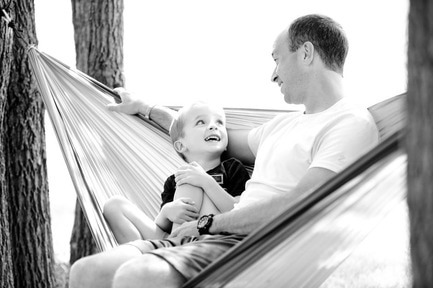 Learn how to safeguard your kids so that you feel better and they do better! If you need to take a parenting or co-parenting class, our parenting (or divorce) class, A Child's Life Depends on Peaceful Resolutions, is available 24/7 online or onsite at Port St. Lucie and Vero Beach, Florida. This is a perfect course for single parents, married couples, blended families, or couples going through a divorce. All participants receive an official certificate upon completion. Life Works Parenting Tools is an international training facility offering parent education and certification. Our goal is to enhance the quality of life by expanding parent education and personal transformation seminars in the world. Life Works Parenting Tools as a team of trained and certified parent educators who teach classes, offer workshops, and make home visits. Susan Dockerill is the founder of Life Works Parenting Tools and the owner of Life Works Resource Center in Stuart, Florida. Her mission is to improve the quality of people’s lives through education. Ten years of teaching children in public, private, and military schools at home and abroad, plus 17 years teaching and mediating with parents and teachers has given her the expertise to speak frankly about marriage, divorce, children, and being responsible for living the life of your dreams. Her style is up-close and personal. She entertains everyone who attends whether she is speaking in a jail or to a church group. Why Parents in Fort Pierce Love our Parenting Class ✓ No reading through hours of text, watch a video of a recorded live course ✓ Course is 100% Online ✓ Unlimited access, Course is Available 24/7 ✓ Live Phone Support with the Instructor, Sue Dockerill ✓ Instant Certificate Delivery "Maybe if I had these tools in the beginning and didn't get married so young I could've made my marriage work. This class or a similar one should be necessary before getting married. What a failure to society not having these tools 14 years ago when I was 19." ~John Fort Pierce is a city in and the county seat of St. Lucie County, Florida, United States. It is also known as the Sunrise City, sister to San Francisco, California, the Sunset City. The population was 41,590 at the 2010 census.
 State-Approved Parent Education and Family Stabilization Course, A Child's Life If you need to take a parenting or co-parenting class, our parenting (or divorce) class, A Child's Life Depends on Peaceful Resolutions, is available 24/7 online or onsite at Port St. Lucie and Vero Beach, Florida. This is a perfect course for single parents, married couples, blended families, or couples going through a divorce. All participants receive an official certificate upon completion. Life Works Parenting Tools is an international training facility offering parent education and certification. Our goal is to enhance the quality of life by expanding parent education and personal transformation seminars in the world. Life Works Parenting Tools as a team of trained and certified parent educators who teach classes, offer workshops, and make home visits. Susan Dockerill is the founder of Life Works Parenting Tools and the owner of Life Works Resource Center in Stuart, Florida. Her mission is to improve the quality of people’s lives through education. Ten years of teaching children in public, private, and military schools at home and abroad, plus 17 years teaching and mediating with parents and teachers has given her the expertise to speak frankly about marriage, divorce, children, and being responsible for living the life of your dreams. Her style is up-close and personal. She entertains everyone who attends whether she is speaking in a jail or to a church group. Why Parents in Tampa Love our Parenting Class ✓ No reading through hours of text, watch a video of a recorded live course ✓ Course is 100% Online ✓ Unlimited access, Course is Available 24/7 ✓ Live Phone Support with the Instructor, Sue Dockerill ✓ Instant Certificate Delivery Parents tell us every day, our course is worth the value, and it's guaranteed to improve your life! Local provider serving Florida since 1991. Tampa is a city on Tampa Bay, along Florida’s Gulf Coast. A major business center, it’s also known for its museums and other cultural offerings. Busch Gardens is an African-themed amusement park with thrill rides and animal-viewing areas. The historic Ybor City neighborhood, developed by Cuban and Spanish cigar-factory workers at the turn of the 20th century, is a dining and nightlife destination.
by Guest Author Elizabeth Powell Have you ever come to a place where there is nowhere else to go but up, down, or sideways? You know that place, I’m sure we’ve all been there, right? You just get to this point where the choices aren’t easy and you know, you just know, that you can’t go back… back is not an option. Seven years ago I was at that point. I had a great job that I loved, two beautiful children, but my home and my marriage was falling apart, like ground crumbling in one of those action adventure movies where the earth is caving in behind the characters’ feet and they have no choice but to jump or climb or die. Actually, my marriage was crumbling before it started. We had built a relationship on a poor foundation to begin with. Everything that was contributing to the inevitable collapse of my family as I knew it were the very things that I saw as “red flags” when I met my husband. Now, don’t get me wrong, my ex-husband is an amazing person. He is a remarkable human being. He is a good father and a kind person. And those were the reasons I stayed and created a relationship with him. You know, no one teaches us how to have relationships. There are no classes when we are growing up in school about how to have relationships, so we learn by default. And our default can be good, our default can be disastrous – or somewhere in between. The fact of the matter is that we learn by our role models and by our societal norms. Very rarely do we “learn” how to have healthy relationships. Many times we don’t even know what a “healthy relationship” looks like. So here I was, sitting at the edge of the cliff… scared to death to take that jump, that leap of faith, but I had no other option… the ground behind me was crumbling and crumbling fast. If you have been through a divorce, then you probably have a pretty good idea of that place I’m talking about. You know people don’t just wake up one day an say “oh, honey, gee, this isn’t really working out, let’s get a divorce” – statistics show that one of you figure it out first… and the other one, even if all the signs are present that your marriage is falling apart, don’t even see it coming. So regardless of which side you were on (or are on) with your divorce, don’t feel bad. There’s a lot of guilt and frustration on both sides of that coin. So there I was… ready to jump knowing that there was no other option… but it isn’t just me, you see, I have these two precious children to think about… ages 6 and 3… pretty critical ages for making a drastic life change, but again, there was no other option. The marriage was so bad that staying I could see was more detrimental than leaving. So, carefully planned out, I did it. And let me tell you… it was NOT pretty! There was fighting and a lot hurt feelings, but after about 2 months things had finally settled down and we were, well… not amicable, but we could at least talk without trying to verbally assault each other! Fast forward one year and the fire was at least settled down to coals. We had been living separately and the children were on a good schedule. I had somehow done it. Somehow my husband had done it. We had managed to separate our family and peace, to some degree, was the result. After a year I had decided to file for divorce and that’s when we found out about the Parenting Class that was required before our divorce could be finalized. At that point we didn’t have to take the class until right before the divorce proceedings. A few weeks before our court date I took Sue Dockerill’s parenting class and it completely changed my life and the way I parent my children and co-parent with their dad. Shortly after I took the class, my soon to be ex-husband took the same class and it revolutionized our relationship as newly divorcing parents. You know, I see so many couples who have divorced or are divorcing with children, and instead of it being a solution to the problems they were having, it becomes an extension of the problems. It’s just a continuance of the fighting, bickering, blaming, guilting, and shaming…. And the worst thing about this is that there are children involved… no children - fight, bicker, shame, blame all you want. It’s like driving a car without wearing your seat belt… only you will suffer the consequences of your actions… but put a child in the car without a car seat or seat belt and you can have a disastrous effect on that child and his or her life forever. And this is exactly what happens when you continue to fight and blame and shame as co-parents. Ultimately, you are teaching your child how to relate to another human being, and more importantly you are teaching the child how to have unhealthy relationships. Did you know that a child’s brain is 90% developed by the age of 5? Critical life skills are being imprinted early on like communicating needs, showing affection and love, how to handle stress, and how to self calm. When our children are born they don’t come with an owner’s manual. When did you take a class that taught you the most effective ways to parent? When did you take a class on how to rewire yourself so that you are modeling the most effective methods for relating to yourself and others? Anybody? Ever? You upgrade your computer, you learn the most effective methods for managing your company, your employees, you keep up to date with the newest techniques in your professional field, you take continuing education credits… but when do you update, upgrade, and, when necessary, rework your method of parenting? If I give you a block of wood and a screw and ask you to put the screw in the block of wood, there’s no doubt in my mind that any of you could do this task with ease, correct? So here’s your screw and wood – an easy task…. But here’s your choice of tools - a wrench, a hammer, needle nose pliers, a mallet and a ratchet – now how successful are you going to be with this “easy” task? What’s this screw going to look like after your attempt to put it in with these tools? Probably not very good, huh? Our tools are handed down from generation to generation within a model given to us by our society, our culture and our religions. We can’t help that we only have a wrench, let’s say in our toolbox. Let’s take spanking as a perfect example – “spare the rod, spoil the child” – we love using that as our justification for spanking our children, especially if we were raised in the religious tradition that gave it to us, but let me explain – does anyone truly understand the context from which that proverb was given? Proverbs 13:24 actually says “Whoever spares the rod hates their children, but the one who loves their children is careful to discipline them.” This is the new International Version and regardless of whether you are a “religious person” or a Christian, wouldn’t you say that this saying is deeply embedded in our culture? The thing that most of us don’t realize, however, is the context which the proverb was given. The rod was used by sheep herders to direct their flock and keep them safe, however, a rod would never have been used to strike or hit a sheep because it would bruise the meat. So how, when and where did the translation and use of this saying come to condone and even encourage spanking, whipping or hitting our children? Not only is it encouraged in some groups, but we, culturally, have strong disdain for those who do not spank their children. We continue to shame those who do not “discipline” (i.e. spank) their children and encourage each other that it is the right and only way to raise up strong, healthy, happy kids and furthermore, that if you withhold this type of discipline that you don’t love your children and that they will be doomed to fail in life. That’s like me telling you that the only and right way to put this screw in the wood is to use this wrench. So we have pressures, parental peer pressures, if you will, for how to raise our kids, we have our families telling us what to do, we have our experience (good, bad or indifferent) from how we were raised… all of these are our tools, sitting in our toolbox waiting to be used. Some of these tools might be very effective and some of them can be disastrous, but we continue using them many times and even if they aren’t working and we can see they aren’t working, we are at a loss as to a better way. Even when presented with a better way to parent our children, the concepts might be so foreign to us and so counter-intuitive based on our past and our culture that we have a hard time adopting them. Tell a spanking parent to stop spanking and they will give you a very unusual look – I was one of those parents, trust me I know firsthand how hard it was to embrace the “non-spanking” philosophy – but I’m a highly logical person… I kept looking at this situation after Sue’s class and asking myself “why do I continue to do something that does not work?”
“Why do I spank my child for hitting?” When I really deconstructed it I realized how absurd it was. But I also had to have another tool in hand… I needed something that worked! Without the replacement of one tool for another and the reality of having to “get the job done” we have to empower our parents with tools that work! Unfortunately, most of the time we don’t raise our children based on the latest and greatest research or knowledge – if we ran our businesses the way we raise our children, we would likely go out of business… we have to modify, learn, research and try out new methods when the old methods aren’t working. Add divorce to the scene of raising children and you have the potential for disaster – Stress, less money, major life transition, etc. These are major changes that are coming out of an already unstable situation and even as adults we have a lot of trouble navigating our way through “troubled waters” – so, imagine how difficult it is for our children. If you’ve already been through something like this then you already know what I’m talking about and how hard it can be. It would behoove all of us to have parenting and relationship classes and instruction way before now – we should be teaching life skills like this with really sound curriculum in our schools beginning in pre-k! We usually introduce “Life Skills” to middle schoolers, but the fact of the matter is that this is too late. Children’s brains reach 82% of their adult size by age 3 and 90% by age 5 – they are learning critical life skills early on even if we don’t recognize it – they are like sponges. They are
Life Works Parenting Tools is dedicated to giving parents, teachers and even corporate America new tools for dealing with children and behaviors that we want to change. You can take any of the tools that we teach in either the divorce class or Redirecting Children’s Behavior class and apply them to anyone, anywhere at any time…. Through parent education, we are able to give parents new tools. And fortunately enough the courts require parents who are divorcing or even non-married parents to attend the 4 hour parenting class during divorce. I’m not saying this is enough by any stretch of the means, but it’s a step in the right direction. Sue’s class changed the relationship I had with my children’s dad. We had real tools that worked for communicating with each other and with our children. The information she presented and her “real talk” touched, moved and inspired me so much that I knew one day I would want to share what I had learned with other parents. Routinely, I have other parents completely amazed at how my ex-husband and I co-parent our children. People often say “you guys are an exception to the rule.” But my answer is that with all the right tools, everyone can be successful co-parents! We can change our co-parenting relationships with the right tools to be the norm, not the exception! We can successfully put that screw in the block of wood with ease and have it hold strong! Today, six years after taking Sue’s class, I’m not only bringing the coursework to parents who attend my class, I’m bringing 6 years of experience, time tested results to demonstrate the effectiveness and success of Sue’s class. I understand intimately the ups and downs, the struggles and the successes of co-parenting and more importantly I know that it IS possible to co-parent with success! What do you do when someone you love hurts you? (Now I am not talking about abuse... if you feel unsafe call 911 and seek help.)
I'm talking about the child who makes you feel like you are the worse parent on the earth... or maybe a lover who hasn't been too nice lately, or a friend who doesn't return your call because they are too busy, or a teenager experiencing unruly hormone changes (you know what I'm talking about!). When someone damages you emotionally, you have an opportunity to be powerful. Do the unexpected. Be an observer. It’s like an out of body experience. Suddenly you have a shield that everything bounces off. Nothing sticks because you are not taking anything personally. Remember, feelings are neither right nor wrong, they are just feelings. Here are 3 rules when someone you love hurts you: Rule 1. Don’t hurt them back... Instead recognize that they are upset and calling out for love. A way to do this is to change your thinking... Let go of "good" and "bad" and see all behavior as a person is either "thriving" or "struggling". What do I mean? Instead of saying "you're a good kid" or "you're a bad kid", acknowledge that children (and adults) are either struggling or thriving. If someone is hurting you, they are most likely struggling, so don’t take it personally. When you know someone is struggling, it's easier to come from a place of empathy and help that person. When we let other people’s hurtful words stick to us, we become the victim. What if I told you that the hurtful words are not really about you? Which leads me to the second rule... Rule 2. Don’t make assumptions... Instead be curious. Say to them, "Tell me some more about how you are feeling. I can see how upset you are, and I feel terrible.” Our gut is to get defensive and hurt back. If you don’t want this to be a reoccurring argument, complete it by making the person feel understood. Once you make someone feel understood the problem can be resolved. Imagine the person saying, “It would mean a lot to me if you could just repeat back to me what I am trying to get across." Then tell them what you are hearing to confirm it is correct and help them feel understood. Rule 3. Remember the kids are watching you. This is the most important rule. If we want your children to grow up feeling loved and powerful, we have to model it. Try these rules out in your life and tell me in the comments below what you experienced. Did it help you resolve an issue? |
Susan Dockerill has 10 years of teaching children in public, private, and military schools at home and abroad, plus over 30 years teaching and mediating with parents and teachers. Susan has the expertise to speak frankly about marriage, divorce, children, and being responsible for living the life of your dreams.
Florida Parenting Topics
All Apalachicola Boca Raton Child Development Children's Adjustment To Divorce Child Well Being Post Divorce Child Well-being Post-Divorce Choices Coparenting Co Parenting Strategies Co-parenting Strategies Coping With Parental Separation Davie Discipline After Divorce Divorce Divorce And Parenting Effective Parenting Techniques Emotional Health Of Children Family Dynamics Family Stabilization Class Florida Florida Divorce Class Florida Parenting Class Fort Pierce Islamorada Jacksonville Live Oak Miami Ocala Orlando Palm Beach Gardens Palm City Parental Guidance Parenting Pompano Beach Redirecting Behavior Relationships Resources Sanford Santa Rosa Sarasota Self Care St Petersburg Tampa Technology Toddlers Tyndall Winter Haven |
DCF Approved Family Stabilization class Co-Parenting 101
Instructor Sue Dockerill Serving Families since 1991.
Instructor Sue Dockerill Serving Families since 1991.
|
This course has been approved by the Florida Department of Children and Families.
Life Works Parenting Tools is dedicated to bridging the gap between home and school by working collaboratively with families, schools, and other local programs and agencies to provide parenting classes, teacher-in-service training, mediation and stay in school programs for at-risk children. Parenting Plan Divorce Resource Resource Guide Florida Divorce Parenting Class |
Privacy Policy
|
Our Commitment to you
This material may not be published, broadcast, rewritten, or redistributed. ©2015-2017 Life Works Parenting Tools. All rights reserved. Waking Girl Web Design.

